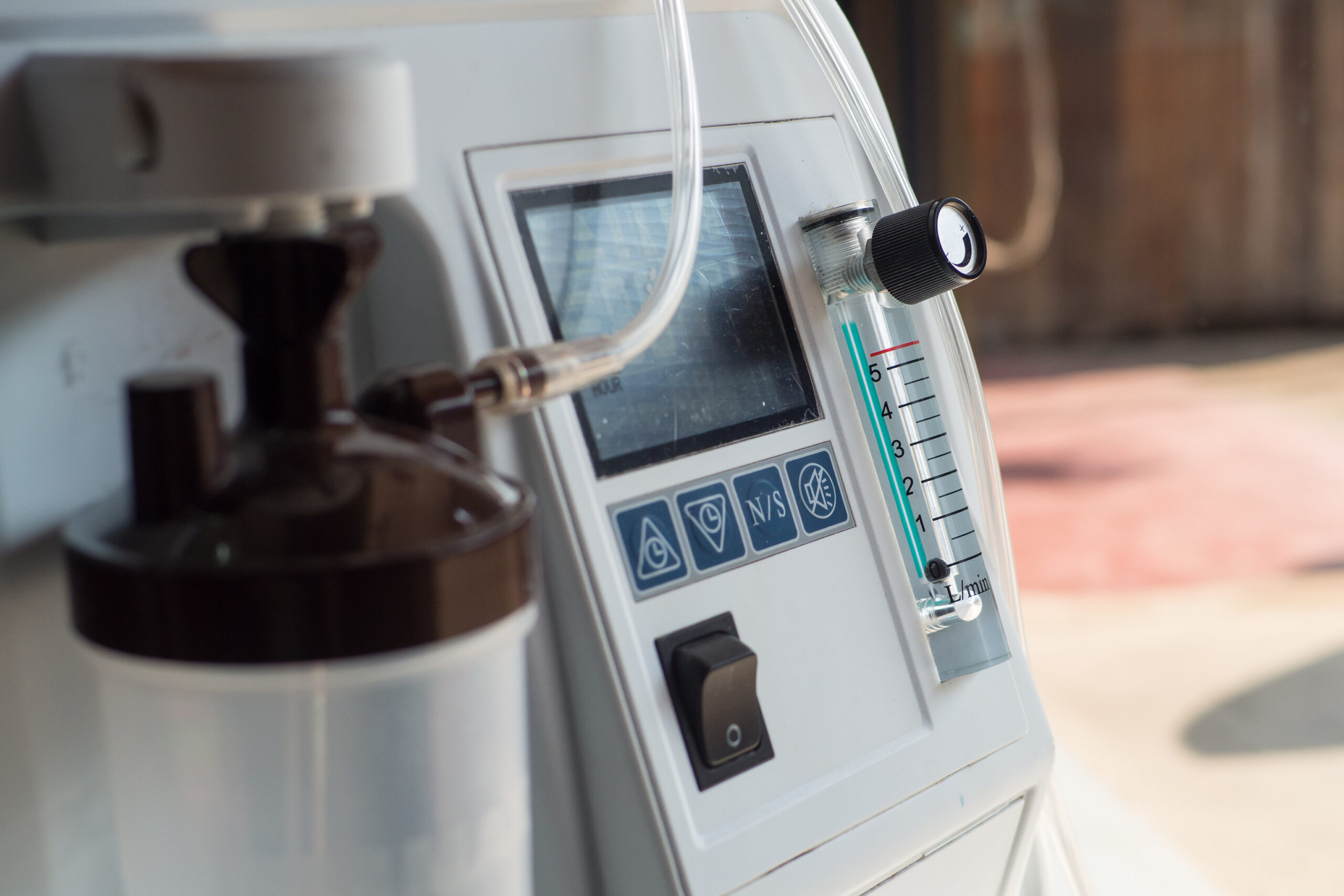Introduction
In today’s world, oxygen concentrators have have become essential, especially for patients suffering from respiratory illnesses such as COPD, pneumonia, and COVID-19. These devices provide a continuous flow of oxygen-enriched air, making them a crucial tool in home and clinical healthcare. Understanding how they work, their benefits, and how to choose the right one can be life-saving.
What is an Oxygen Concentrator?
An oxygen concentrator is a medical device designed to extract oxygen from ambient air and deliver it to individuals requiring supplemental oxygen. Unlike oxygen tanks, which store compressed oxygen, concentrators filter and purify air to provide an unlimited supply of oxygen as long as they are powered .
How Does an Oxygen Concentrator Work?
The device functions through a multi-step process:
- Air Intake: The concentrator pulls in surrounding air.
- Filtration and Compression: It removes nitrogen and other gases, compressing the purified oxygen.
- Delivery: The filtered oxygen is delivered to the patient via a nasal cannula or mask.
- Continuous Cycle: This process repeats, ensuring a steady supply of oxygen without requiring refills.
Types of Oxygen Concentrators
1. Stationary (Home) Oxygen Concentrators
- Used primarily for home therapy.
- Can deliver higher flow rates (5–10 LPM).
- Require a continuous power source.
2. Portable Oxygen Concentrators (POCs)
- Lightweight and battery-operated.
- Ideal for travel and outdoor activities.
- Typically provide pulse dose oxygen, though some models offer continuous flow.
Benefits of Using an Oxygen Concentrator
1. Unlimited Oxygen Supply
Unlike oxygen tanks that require refills, concentrators generate their own oxygen, making them more cost-effective and convenient.
2. Enhanced Mobility
Portable oxygen concentrators allow patients to maintain an active lifestyle, traveling freely without worrying about running out of oxygen.
3. Improved Quality of Life
Patients with chronic lung diseases experience better oxygenation, reduced breathlessness, and improved stamina, enabling them to perform daily activities more easily.
4. Environmentally Friendly
Oxygen concentrators reduce waste and the need for transporting heavy oxygen cylinders, making them a greener choice.
Who Needs an Oxygen Concentrator?
- Patients diagnosed with Chronic Obstructive Pulmonary Disease (COPD).
- Individuals with severe asthma or respiratory infections.
- People recovering from COVID-19.
- Those suffering from pulmonary fibrosis or other lung diseases.
- Patients experiencing low blood oxygen levels (hypoxia).
How to Choose the Best Oxygen Concentrator
1. Oxygen Flow Rate
- Measured in liters per minute (LPM).
- Patients with severe conditions may require higher flow rates.
2. Portability and Weight
- Home units tend to be larger and heavier.
- Portable models are compact and lightweight for travel convenience.
3. Battery Life and Power Options
- Some portable units offer extended battery life.
- Home models need a reliable power source.
4. Noise Levels
- Some models are quieter, ideal for home use, while others can be noisier.
5. Additional Features
- LCD displays, alarms for low oxygen purity, and easy-to-use controls enhance the user experience.
Tips for Using an Oxygen Concentrator Safely
- Keep the device in a well-ventilated area to prevent overheating.
- Regularly clean the filters to maintain optimal performance.
- Avoid smoking or using open flames near the concentrator.
- Ensure proper humidification to prevent dryness in the airways.
- Follow your doctor’s prescribed oxygen levels to avoid complications.
Common Myths About Oxygen Concentrators
1. “Only critically ill patients need oxygen concentrators.”
- Many people with moderate respiratory conditions benefit from oxygen therapy.
2. “Oxygen concentrators provide unlimited oxygen instantly.”
- While they continuously generate oxygen, they require time to reach optimal purity levels.
3. “Portable oxygen concentrators are just as powerful as home units.”
- Most POCs provide lower flow rates, making them unsuitable for severe cases.
Conclusion
Oxygen concentrators are life-saving devices that provide critical respiratory support for people with lung diseases and low oxygen levels. Whether you’re looking for a home unit or a portable option, choosing the right oxygen concentrator can significantly improve health, mobility, and overall quality of life. Always consult a healthcare professional to determine the best oxygen therapy for your needs.

























